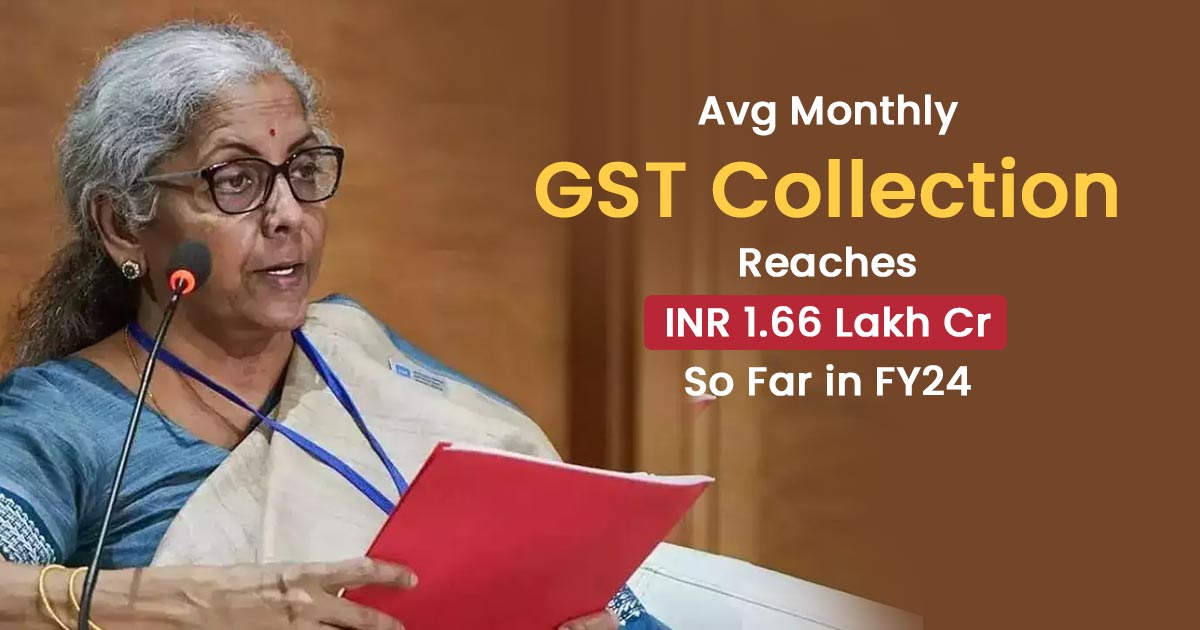
The collection of Goods and Services Tax (GST) has been exhibiting an upward trajectory yearly since its implementation on July 1, 2017, and the average total monthly collection in the current financial year so far is Rs 1.66 lakh crore, as stated by Finance Minister Nirmala Sitharaman on Monday.
In a written response to a query in the Lok Sabha, she mentioned that the monthly GST collection exceeded the Rs 1.50 lakh crore mark in each month of the ongoing financial year, touching a significant high of Rs 1.87 lakh crore in April 2023.
GST revenue has been showing a rising pattern annually since the initiation of GST on July 1, 2017. The mean gross monthly collection of GST in FY 2023-24 presently amounts to Rs 1.66 lakh crore, which reflects an 11 per cent increase compared to the same phase for the last fiscal year, according to Sitharaman.
The average monthly collection of Goods and Services Tax (GST) in 2022-23 surpassed Rs 1.50 lakh crore, which was higher than the Rs 1.23 lakh crore in 2021-22. In 2020-21, the monthly average collection amounted to Rs 94,734 crore.
Responding to a separate query, Minister of State for Finance Pankaj Chaudhary stated that the average monthly total GST revenue for 2021-22 and 2022-23 exhibited a year-on-year hike of 30 per cent and 22 per cent, respectively.
GST is settled based on self-assessment, and the tax administration at the Central and State levels has the authority to initiate efforts against matters of non-payment or underpayment of GST. Chaudhary stated that the identification of these matters and the recovery of unpaid or underpaid taxes is an ongoing process.
He further added that the government, following the recommendations of the GST Council, has been implementing various improvements in GST, which would enhance GST compliance and boost the collection of GST.
These reforms encompass structural modifications such as adjusting GST rates to rectify the inverted duty structure and reducing exemptions. Additionally, measures to enhance tax compliance, like instructing the use of e-way bills, matching input tax credits (ITC), requiring e-invoices, utilizing artificial intelligence and machine-based analytics, implementing Aadhaar authentication for registration, and taking appropriate action against non-filers, are being undertaken.
Moreover, system-based analytical tools and system-generated reports highlighting potential issues are being discussed with both central and state tax authorities to address tax evasion.
In response to another query, Chaudhary mentioned that the central government, as per the recommendation of the GST Council, has established State Benches of the GST Appellate Tribunal.
Providing details regarding the number of pending appeals related to tax demands issued by Central GST authorities, Chaudhary stated that as of October 31, 2023, there are 14,897 pending appeals, which is higher than the 11,899 pending appeals as of March 31, 2023.









